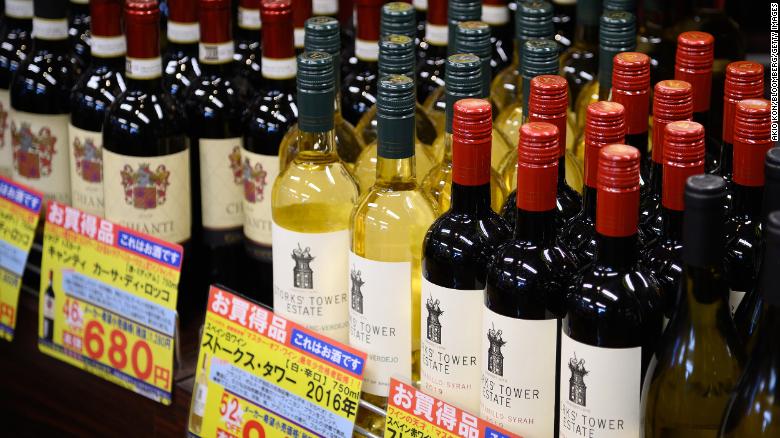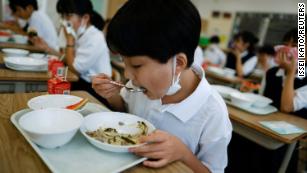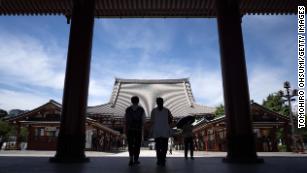By Jessie Yeung and Junko Ogura, CNN
Updated 0736 GMT (1536 HKT) August 18, 2022

Bottles of wine displayed for sale at a Takeya Co. store in the Ueno District of Tokyo, Japan, on April 20.
Tokyo (CNN)The Japanese government has been hit in the pocket by an unusual problem — its young people aren’t drinking enough.
Since the pandemic began, bars and other premises selling alcohol have been hit hard by Covid-19 restrictions, causing sales — and liquor tax revenues — to plummet in the world’s third-largest economy.
The government’s solution? Launch a contest to find new ways to encourage young people to drink more.
The “Sake Viva!” campaign, overseen by the National Tax Agency, invites participants to submit ideas on how to “stimulate demand among young people” for alcohol through new services, promotional methods, products, designs and even sales techniques using artificial intelligence or the metaverse, according to the official competition website.

Tokyo school swaps fruit for jelly as inflation bites
“The domestic alcoholic beverage market is shrinking due to demographic changes such as the declining birthrate and aging population, and lifestyle changes due to the impact of Covid-19,” said the website, adding that the competition aimed to “appeal to the younger generation … and to revitalize the industry.”
The contest includes promotional ideas for all types of Japanese alcohol, with applications open until September 9. Finalists will be invited to an expert consultation in October, before a final tournament in November in Tokyo. The winner will receive support for their plan to be commercialized, according to the tax office.
But not everyone is on board, with the competition and tax agency receiving criticism from some people online.
“Are you kidding me?” one Twitter user wrote. “Staying away from alcohol is a good thing!”
Others pointed out that it seemed inappropriate for a government agency to encourage young people to drink, and it appeared the campaign had not considered health risks or sensitivity toward people dealing with alcoholism.
Japan’s Health Ministry has in the past warned of the dangers of excessive drinking. In a post on its website last year, it called excessive alcohol consumption a “major social problem” that persisted despite a recent slowdown in consumption. And it urged people with unhealthy drinking habits to “reconsider” their relationship with alcohol.
A ministry spokesperson declined to comment on the tax agency’s competition when contacted by CNN.
Declining sales
Japan, along with several other countries in Asia, maintained tough restrictions throughout much of the pandemic, closing public spaces and reducing business hours for restaurants.
Izakayas — Japan’s version of a pub or tavern — were particularly hard hit, with the latest available figures showing sales halved from 2019 to 2020, according to the Ministry of Economy, Trade and Industry.
With fewer opportunities to drink in public, the rate of “household consumption” — drinking at home — “increased significantly,” the ministry said.
But young adults have stood out as the exception. About 30% of people in their 40s to 60s drink regularly, meaning three days or more per week, the ministry said — compared to just 7.8% of people in their 20s.

Japan is open to travel. So why aren’t tourists coming back?
“In this way, the decline in drinking habits year by year is thought to be having an effect on the shrinking of the domestic market,” the ministry said.
In a 2021 report, the tax agency said duties on liquor had been a major revenue source for the government for centuries, but had declined in recent decades. Japan received 1.1 trillion yen ($8.1 billion) in alcohol tax in 2021 — 1.7% of overall tax revenue, compared to 3% in 2011, and 5% in 1980.
Japan lifted its state of emergency in October 2021, allowing restaurants to sell alcohol again and stay open later — but restrictions in some parts of the country remained in place until March this year.
The country’s recovery since then has been slower than expected, hindered by rising inflation, the economic impact of the war in Ukraine, and recent surges in Covid cases that have led to prolonged restrictions.
